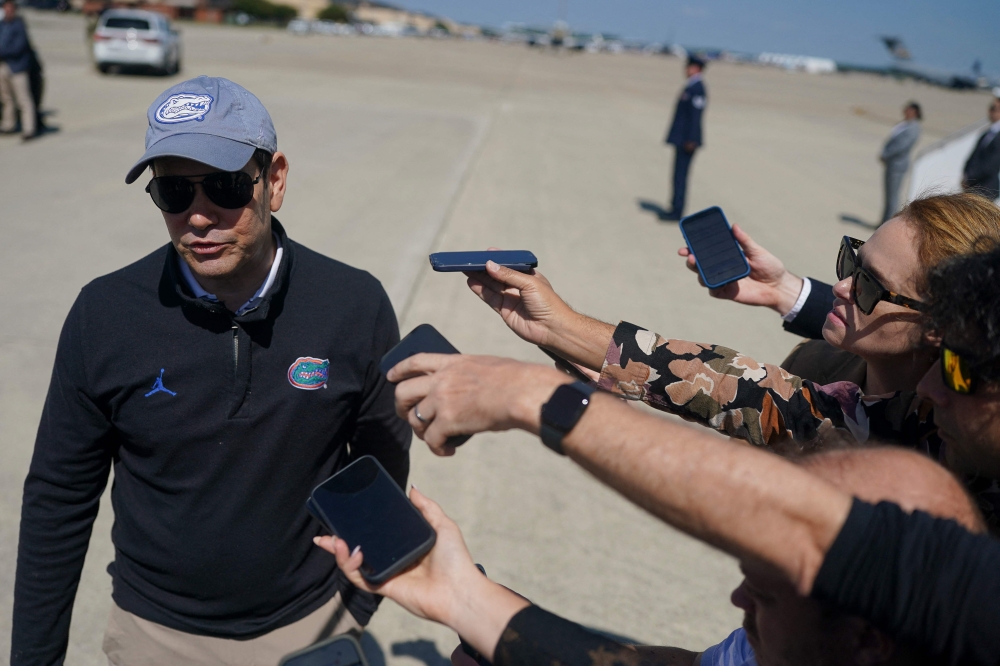WASHINGTON, Aug 22 — In a swift and controversial move, the Trump administration has halted the issuance of worker visas for foreign commercial truck drivers, a decision that’s already sparking fierce debate across the country.
The policy change follows a tragic highway crash in Florida that claimed three lives. The driver involved, Harjinder Singh—a man from India who allegedly entered the U.S. through Mexico—has been charged. Officials say he failed an English exam after the accident, fueling criticism from Republican lawmakers and prompting the administration to act quickly.
“Effective immediately, we are pausing all issuance of worker visas for commercial truck drivers,” U.S. Secretary of State Marco Rubio announced via X. He cited concerns over safety and job security for American truckers. “The increasing number of foreign drivers operating large tractor-trailer trucks on U.S. roads is endangering American lives and undercutting the livelihoods of American truckers,” Rubio stated.
The tragedy and its aftermath have become a lightning rod in the ongoing immigration debate, especially since Singh received his commercial driver’s license in California—a Democratic-run state often at odds with Trump’s immigration stance. Florida officials responded strongly, with the lieutenant governor traveling to California to bring Singh back under escort.
U.S. Transportation Secretary Sean Duffy didn’t mince words, calling the crash “a preventable tragedy directly caused by reckless decisions and compounded by despicable failures.”
In response, California’s governor’s office clarified that Singh was issued a work permit by the federal government while he sought asylum and that the state cooperated fully in his extradition.
But the incident has revived broader concerns among Republicans about the role of immigrant labor in trucking. Even before this crash, lawmakers were pushing for tighter restrictions. In June, Secretary Duffy mandated that truck drivers must demonstrate English proficiency, reversing earlier leniency from the Obama era that allowed language limitations to slide under certain conditions.
A Changing Industry
According to federal data, the number of foreign-born truck drivers has surged in the past two decades—more than doubling to over 720,000 between 2000 and 2021. Today, immigrants make up 18% of the U.S. trucking workforce. Many hail from Latin America, India, and Eastern Europe, including Ukraine.
Industry experts say this shift isn’t about immigration policy but market demand. The U.S. is grappling with a shortage of roughly 24,000 truck drivers, costing the economy an estimated $95.5 million per week in undelivered goods, according to a study by financial firm altLine.
A Broader Crackdown
This visa suspension is just the latest chapter in Trump’s broader immigration crackdown. The State Department under Rubio has already revoked over 6,000 student visas—four times more than during the same period the year before. Officials have increased vetting and begun monitoring social media accounts of visa applicants.
Controversially, visas for severely wounded children from Gaza were also recently paused, after far-right activist Laura Loomer reportedly lobbied Rubio by raising fears of “Islamic invaders.” Loomer, known for promoting conspiracy theories, has significant influence in Trump-aligned circles.
Critics argue that these sweeping visa policies risk vilifying entire communities while ignoring the vital roles immigrants play in the U.S. economy. For many foreign-born truckers, driving is not just a job—it’s a pathway to stability, opportunity, and contribution in a country built on hard work and diversity.
As the dust settles from Florida’s tragic accident, the U.S. faces difficult questions: Can it balance safety and sovereignty without slipping into discrimination? And at what cost do we sacrifice inclusion in the name of protection?




